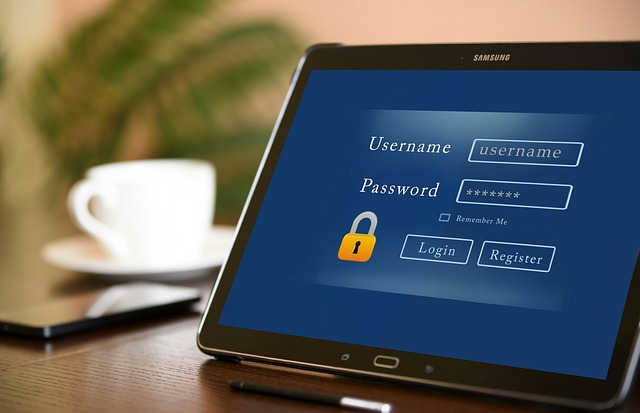Multi-factor authentication (MFA) strengthens access control for law firms, offering an extra layer of protection beyond passwords. By requiring multiple verification factors, it curbs unauthorized access to sensitive data like case files and client info, vital in the legal sector where privacy is paramount. IT support for attorneys is crucial for implementing MFA, ensuring secure data management and fostering client trust.
“In today’s digital age, securing access to sensitive legal data is paramount. Multi-Factor Authentication (MFA) stands as a robust solution for law firms seeking to fortify their data protection measures. This article guides IT support teams in assisting attorneys with implementing MFA, offering a comprehensive step-by-step approach. We explore the basic principles of MFA and delve into why it’s crucial for maintaining secure access control, especially for legal professionals handling confidential client information. By following best practices outlined here, IT support for attorneys can ensure enhanced data security.”
Understanding Multi-Factor Authentication: The Basics
Multi-factor authentication (MFA) is an essential security measure that adds an extra layer of protection beyond traditional passwords, making it a game-changer in access control for law firms and their IT support needs. In its simplest form, MFA requires users to provide two or more verification factors before granting access to sensitive data or systems. This could include something the user knows (like a password), something they have (such as a security token or smartphone app), or something inherent to them (biometric data like fingerprints or facial recognition).
By implementing MFA, attorneys and their IT support teams can significantly reduce the risk of unauthorized access to confidential case files, client information, and other critical data. This is particularly crucial in the legal sector, where maintaining client privacy and security is paramount. With MFA, even if a hacker obtains an employee’s password, they still won’t be able to gain entry without the additional authentication factors.
Why Attorneys Need Robust Access Control Measures
In today’s digital era, where sensitive client data and confidential legal documents are increasingly at risk from cyber threats, Attorneys require robust access control measures to safeguard their practices. Multi-factor authentication (MFA) plays a pivotal role in this regard, providing an extra layer of security beyond simple passwords. By demanding multiple forms of verification, such as a unique code sent to an attorney’s mobile device or biometric identification, MFA significantly reduces the risk of unauthorized access to crucial information, ensuring only authorized personnel can view and manage sensitive case details.
Seeking expert IT support for attorneys is becoming increasingly vital. Specialized IT professionals understand the unique challenges faced by legal practices and can implement tailored security solutions like MFA. This not only strengthens data protection but also fosters client confidence, demonstrating a commitment to maintaining the highest standards of confidentiality and integrity in handling sensitive information.
Implementing MFA: A Step-by-Step Guide for IT Support
Implementing Multi-Factor Authentication (MFA) is a robust strategy for enhancing security protocols, particularly for legal firms seeking to protect sensitive client data. Here’s a straightforward guide for IT support teams assisting attorneys with MFA deployment:
1. Assess Current Systems: Begin by evaluating the firm’s existing access control infrastructure. Identify user accounts and systems that require MFA protection. This step is crucial as it ensures targeted implementation, avoiding unnecessary complexity.
2. Choose MFA Methods: Offer flexible authentication options tailored to attorney preferences and workstyles. Options may include SMS-based codes, mobile apps (e.g., Google Authenticator), or hardware tokens. Balancing security and user experience is key, especially for professionals on the go.
Best Practices for Ensuring Secure Data with MFA
Multi-factor authentication (MFA) is a game-changer in ensuring secure data access, especially for legal professionals who rely heavily on sensitive information. When implementing MFA, law firms and attorneys should consider several best practices to maximize security. One crucial aspect is to choose reliable MFA solutions that offer robust encryption and secure token generation. This prevents unauthorized access attempts and safeguards confidential client data.
Additionally, IT support for attorneys plays a vital role in setting up and managing MFA. Professionals should enable MFA across all critical applications and systems, ensuring no single point of failure. Regular security audits and user training are essential to identify potential vulnerabilities. By adhering to these practices, legal entities can create a secure environment, protect client privacy, and maintain the highest standards of data integrity, thereby fostering trust among their clients.
Multi-factor authentication (MFA) is a game-changer in securing access control, especially for industries like law where sensitive data abounds. By implementing MFA, IT support for attorneys can significantly reduce the risk of unauthorized access and data breaches. Following the step-by-step guide provided and adopting best practices will ensure a robust security framework, safeguarding client information and maintaining the highest standards of confidentiality. This conclusion underscores the importance of integrating MFA into access control strategies for modern legal practices.
